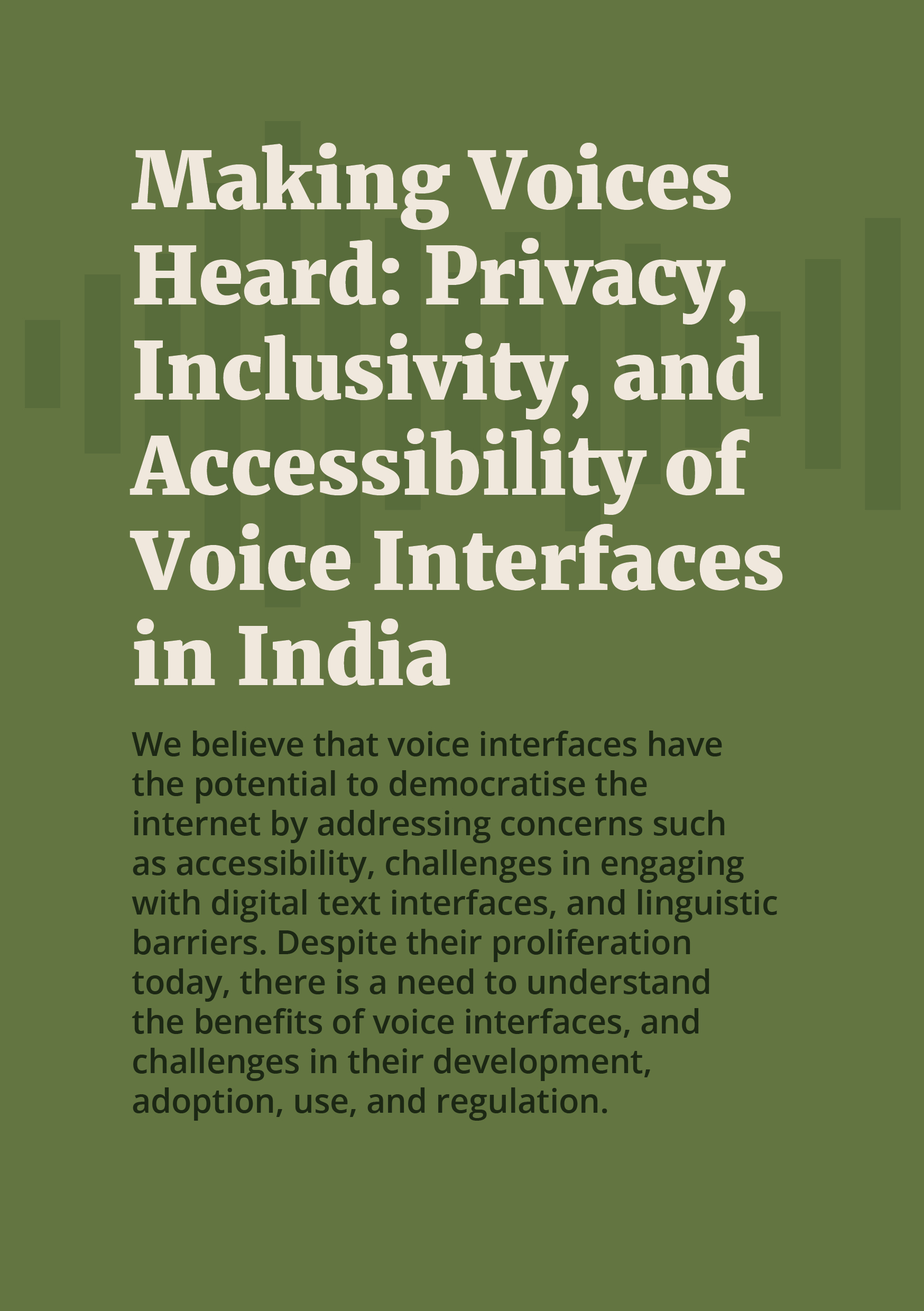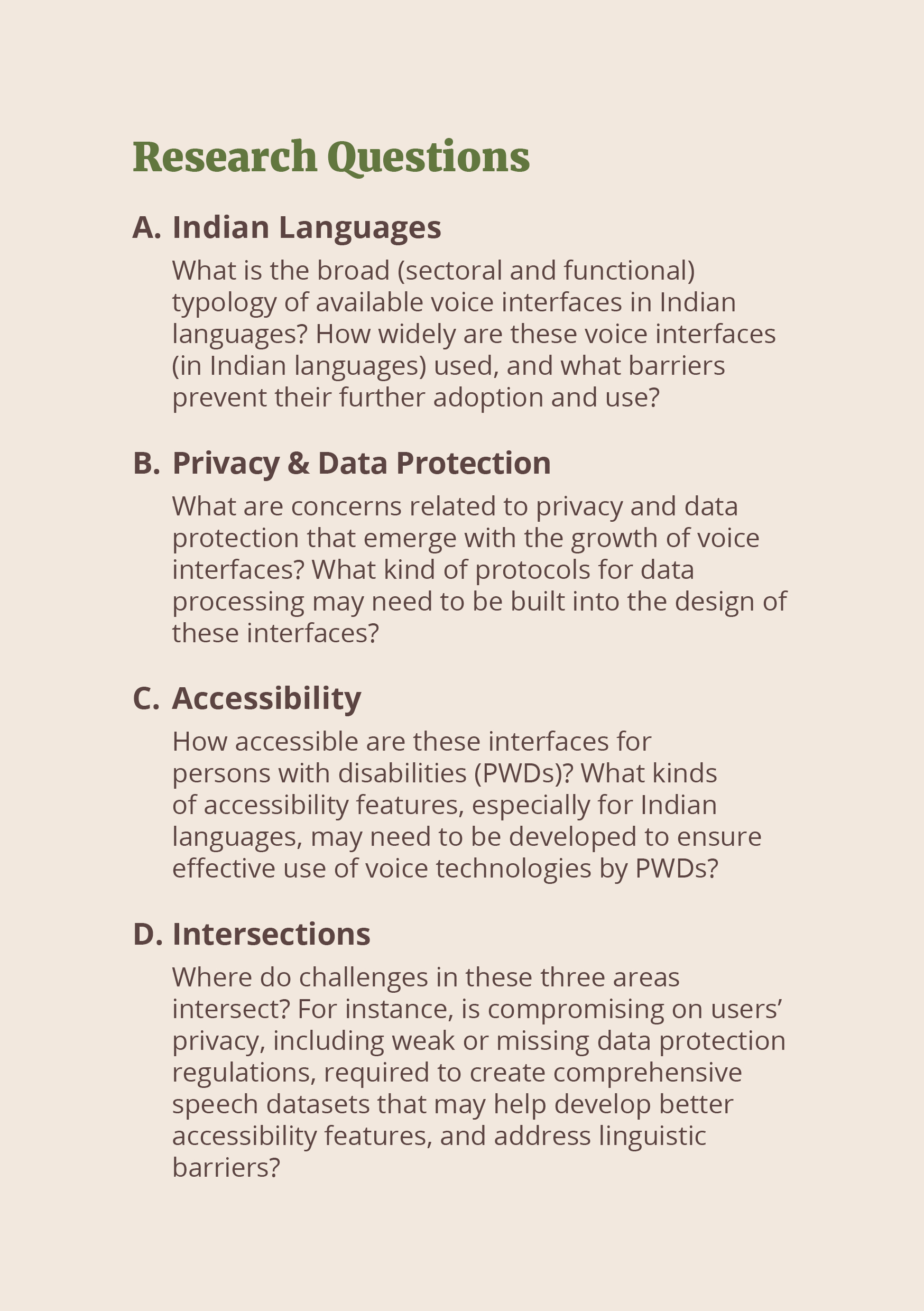Making Voices Heard: Privacy, Inclusivity, and Accessibility of Voice Interfaces in India



Download the project announcement cards (shown above): Card 01, Card 02, and Card 03
Making Voices Heard: Project Announcement
Although voice enabled interfaces are being deployed there is a need to understand how they are beneficial, and what have been important knowledge gaps and challenges in their development, adoption, use, and regulation. Through the Making Voice Heard Project supported by Mozilla Corporation, we will be examining the current landscape of voice interfaces in India, and seek to address the following questions:
- What is the broad (sectoral and functional) typology of available voice interfaces in Indian languages? How widely are these voice interfaces (in Indian languages) used, and what barriers prevent their further adoption and use?
- What are concerns related to privacy and data protection that emerge with the growth of voice interfaces? What kind of protocols for data processing may need to be built into the design of these interfaces?
- How accessible are these interfaces for persons with disabilities (PWDs)? What kinds of accessibility features, especially for Indian languages, may need to be developed to ensure effective use of voice technologies by PWDs?
- Where do challenges in these three areas intersect? For instance, is compromising on users’ privacy, including weak or missing data protection regulations, required to create comprehensive speech datasets that may help develop better accessibility features, and address linguistic barriers?
In order to approach these questions we have begun mapping the various developers and users of voice interfaces in India. In the next stage of the process we will be looking at these interfaces through the lens of privacy, language, accessibility, and design. In order to add to the mapping and questions, we will be conducting interviews and workshops with users, developers, designers and researchers of voice interfaces in India, including the Common Voice team at Mozilla.
We hereby invite researchers, developers and designers of voice interfaces to speak to us and help inform the study. You may contact Shweta Mohandas at [email protected].
- Shweta Mohandas, Saumyaa Naidu, Puthiya Purayil Sneha, and Sumandro Chattapadhyay (project team)


